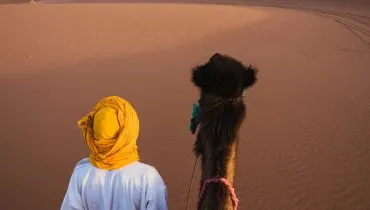Start your study abroad experience in the “cradle of civilization” where you can see the last remaining wonder of the ancient world—the Pyramids of Giza—and walk along the banks of the world’s longest river—the mighty Nile—which divides a harsh, yet beautiful desert. Explore the Cairo Opera House, the Bibliotheca in Alexandria or go shopping at local bazaars and visit old Fatimid Cairo. Egypt is a unique mixture of ancient and modern texture blended together into a unique mosaic.
Egyptian teenagers enjoy meeting in cafés, sports clubs, the cinema or shopping malls. Although mingling at schools and universities is acceptable, it is not very common for young women and men to go out on their own. Group activities are more the norm.


